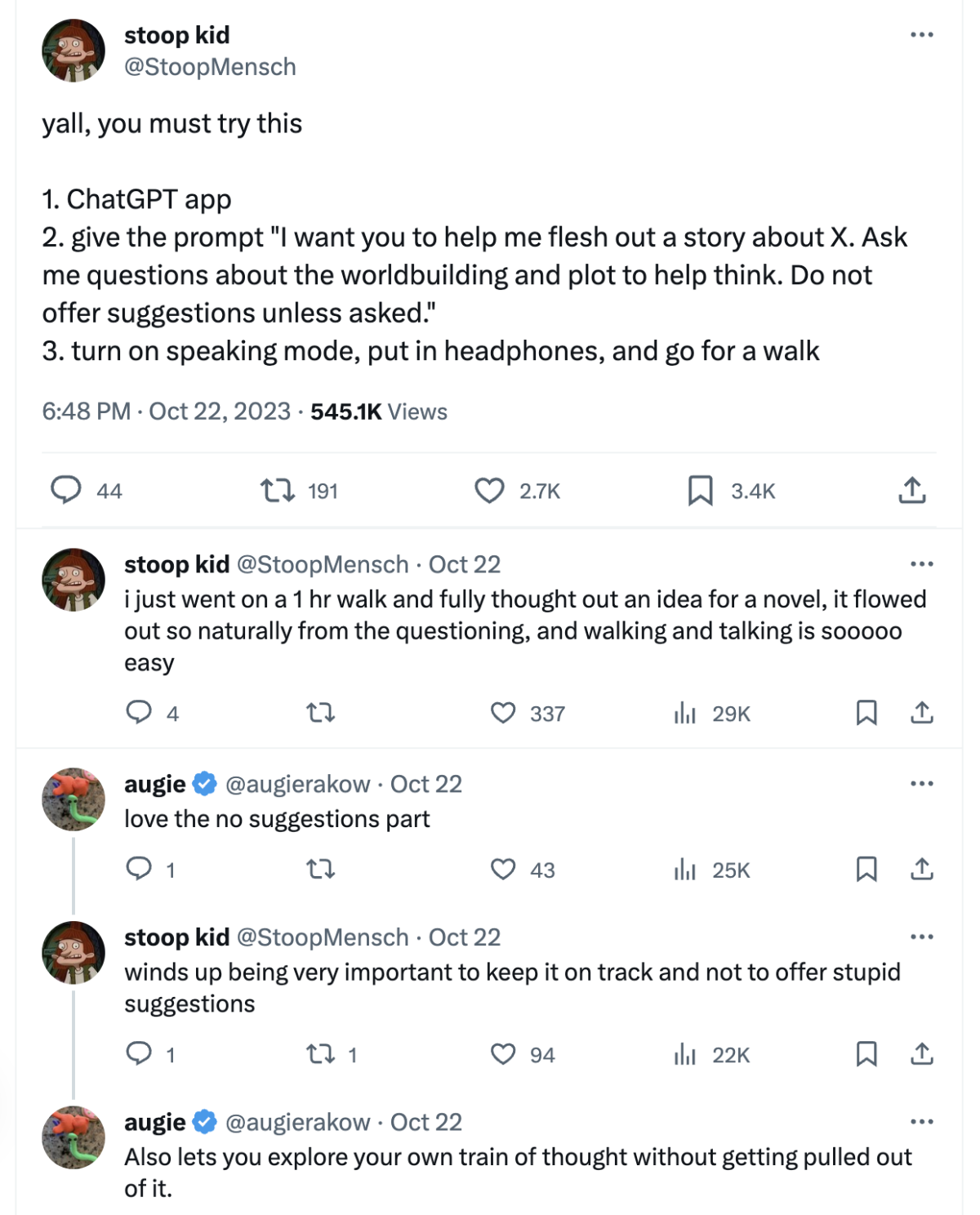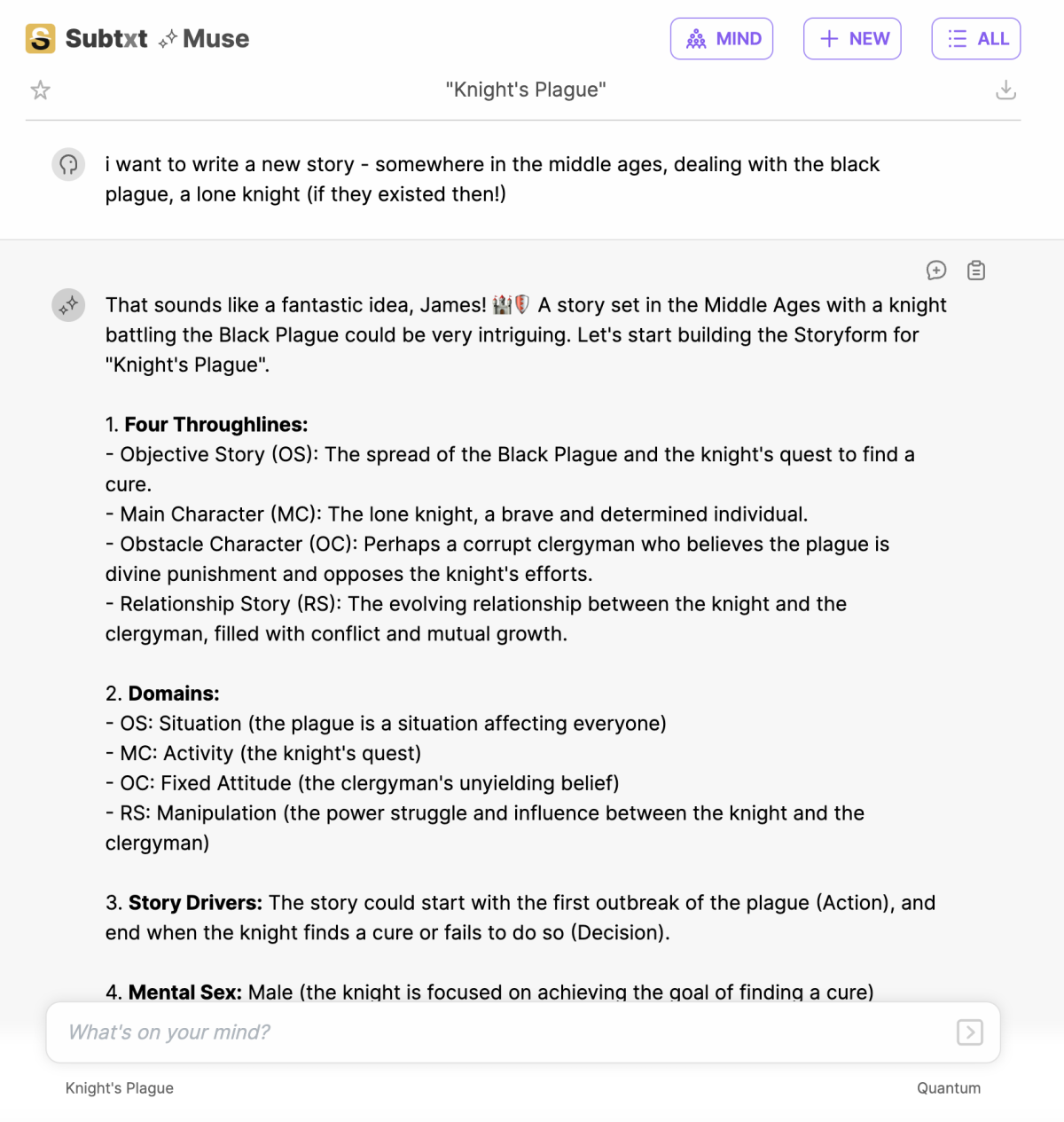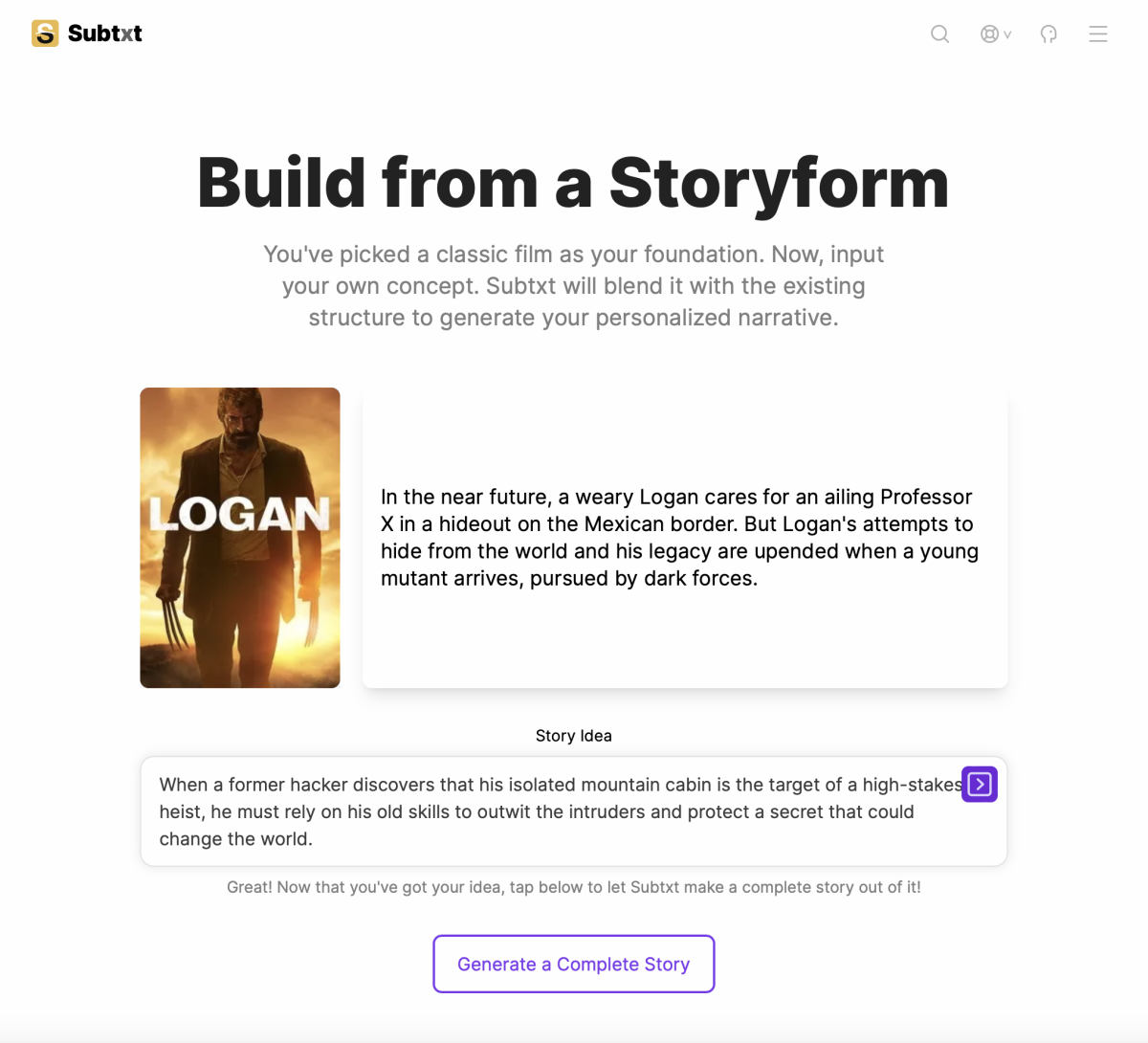The Anti-Subtxt Approach: AI, Rambling, and Missed Opportunities in Storytelling
Why AI alone can't write your story
So, there's this tweet going around about using ChatGPT as a writing assistant. The idea? Fire up the ChatGPT app, slap on a prompt that asks the AI to help flesh out a story but only via questions, throw on some headphones, and go for a walk. Sounds cool, right? The tweet’s got hundreds of thousands of views and heaps of people are buzzing about how they've 'fully thought out an idea for a novel' through this method.
Even Greg Brockman, President & Co-founder of OpenAI thinks it's great:
ChatGPT Voice as a long-form conversational brainstorming partner
But does it really work in the long run?
Unveiling the Glitter
Hey, I get it. We live in an era that worships quick hacks and shortcuts. Everyone's looking for that magic button to instantly conjure up a compelling narrative. But let's dissect this for a minute. What exactly are you getting here?
The Pitfalls of ChatGPT for Storytelling
Sure, you’re getting lots of questions from ChatGPT that help you brainstorm. And yeah, walking and talking can be a pretty chill way to let ideas flow. But hold on a second. Are the questions themselves actually contributing to a coherent and meaningful story structure? Nah, not really.
ChatGPT's understanding of story is fundamentally based on hundreds of years of misguided, subjectively-biased ideas about narrative and narrative structure. So, if you're relying solely on it to develop your story, you're entering a world of chaos with no actual direction. You might end up with a lot of words and ideas, but structurally? It’s an exercise in awfulness.
Enter Subtxt and Subtxt Muse: The Cutting-Edge Storybuilding Tools
Look, I've spent over 30 years diving deep into the mechanics of narrative theory. Subtxt isn't just an AI assistant—it's an invaluable tool trained on decades of insight into what makes stories tick. Whether you're a rookie or a seasoned screenwriter who's had an Oscar contender, Subtxt has got you covered (and yes, Subtxt actually helped build an almost-Oscar-contender).
Narrative Agents: The Real MVPs
The latest introduction to the Subtxt universe is Narrative Agents (AutoGPT for building stories). This isn't about the AI mimicking your thoughts or asking arbitrary questions. Narrative Agents analyze your story concept and offer tailored suggestions that align with proven story theories. The AI helps you bring some semblance of order to your chaotic ideas, so you end up with a strong, meaningful narrative that represents both your imagination and your artistic intent.
Subtxt’s Daily Updates
We’re so committed to providing the best storytelling tool out there that Subtxt gets updated daily. Yep, every single day, the app designed to help you write a better story just gets more and more intelligent. And we make sure to integrate the latest advancements in AI to ensure you're getting the most intelligent and accurate story suggestions.
Wrapping It Up
The original tweet's approach is fun for spitballing and maybe even breaking through writer’s block. But if you're serious about storytelling, why settle for a half-baked, directionless pile of ideas when you can craft a masterpiece?
Subtxt and Subtxt Muse offer an in-depth understanding of story structure that goes beyond generic AI suggestions. It’s a tool that evolves with you, ensuring that your artistic intent is not just preserved but elevated, every step of the way. So go ahead, bring your story ideas to Subtxt, and let’s turn them into something genuinely remarkable.
Until next time, keep on writing and keep on dreaming. Cheers!
Download the FREE e-book Never Trust a Hero
Don't miss out on the latest in narrative theory and storytelling with artificial intelligence. Subscribe to the Narrative First newsletter below and receive a link to download the 20-page e-book, Never Trust a Hero.




